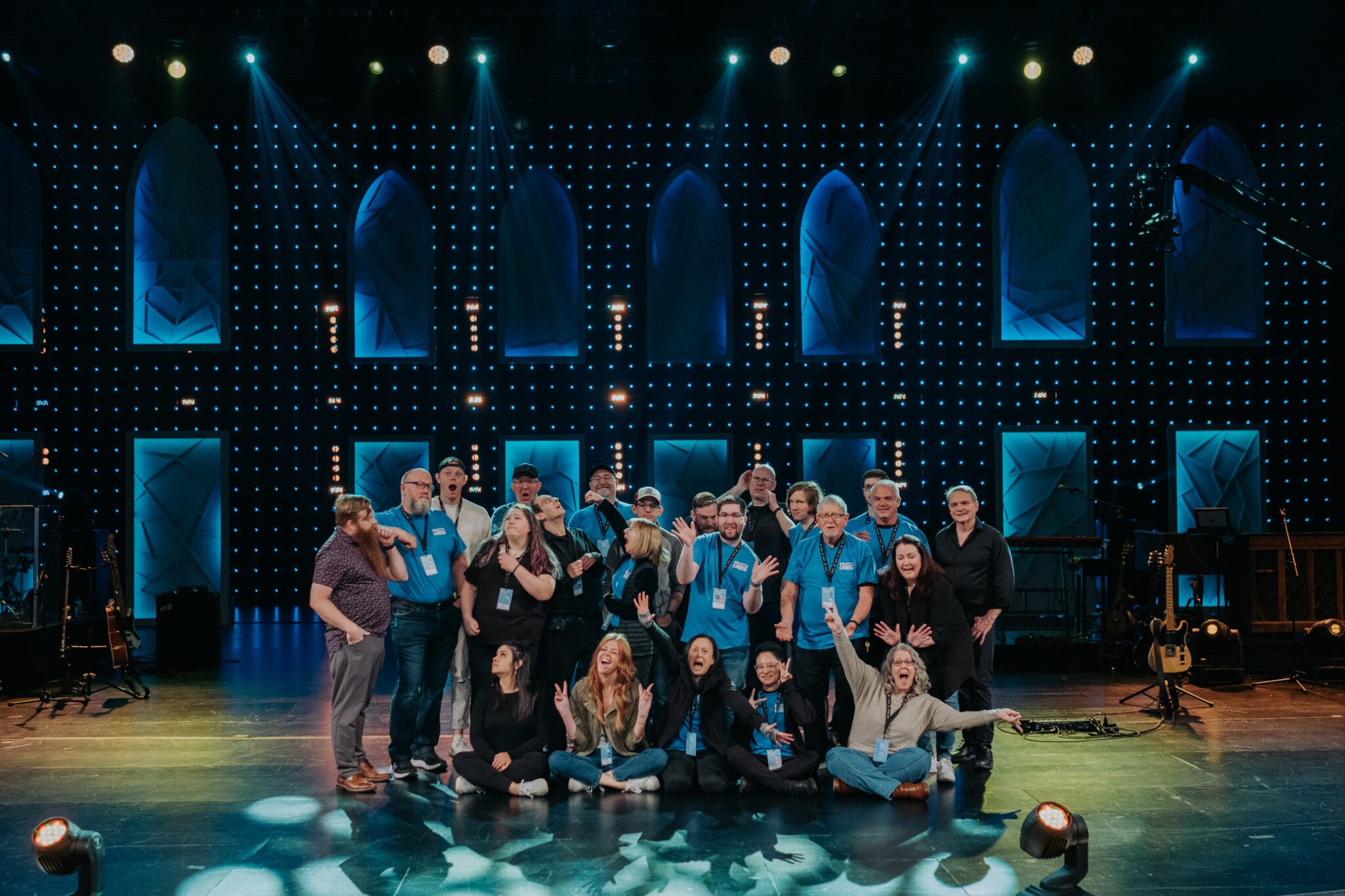
Change happens. This has become very apparent in our world these days.
The thing that is interesting about change is that you really can’t prepare for it exactly. Take the Covid-19 situation we find ourselves in. I’m sure we could have done some things differently to prepare had we known it was coming, but the exact nature of the change has taken many of us by surprise.
I’m not just talking about how I wasn’t prepared for hoarding toilet paper. For a group of technical artists in the local church, this has reinvented how church happens. Given the level of skepticism of “Online Church” just a few short months ago, none of us could have imagined that churches around the world would be holding services virtually.
While the specifics of change might be difficult to prepare for, getting used to the fact that things change and then dealing with change is a muscle that many of us have been building for years.
For those of us doing production in the local church, change is what we do. Or at least what we should have gotten used to by now. Think of any weekend. When did everything go as planned? Basically never. There is always something changing for one reason or another, completely outside of our control.
A team member calls in sick. A song gets cut. A song gets added. Then that song gets cut. The pastor has a last-minute tweak to the sermon. The fire alarm goes off. And by the way, we now need to start streaming our services because no one is allowed in the building.
When change happens, how have we learned to deal with it? What is your automatic response like when things change? Is it a positive one? Or is it dragging you and the people around you down?
So much about managing change involves our mindset; how we think about change.
There are two types of change. One that comes from lack of planning and poor systems. Fixing these feels easy (especially compared to where we see ourselves today). Building processes and systems to manage information is a key factor in making our services the best they can be. Do that. Eliminate the change that can be solved earlier in the week.
Even after all the work to improve your systems and processes to eliminate change, the fact remains that things will still change.
The other kind of change I’m talking about is more about the unexpected; one that is outside of our control.
How you handle change every week has either set you up for success in today’s reality, or you are currently taking a crash course in change management right now.
What are some ways that we can learn quickly to handle change?
You don’t have to have all the answers.
Relax. You aren’t the only one that is trying to figure this whole thing out. We all are. Cut yourself some slack.
One of my favorite parts about so many churches learning how to stop meeting in person and continue online is that everyone is learning together. This is a change for all of us. We are all trying to figure out what’s going on.
For the worship leader, how do you lead worship in front of an empty room? For the senior pastor who’s used to working off the energy from the congregation, he is probably floundering and figuring out a new reality. On some levels, many of you are ahead of this curve because you were asked to figure out how to stream a long time ago. Not to prepare for this exact moment, but maybe just because the church down the street was doing it and we need to keep up. Not a great reason, but much of the technical side of streaming your services might have already been figured out.
One of the reasons that change can be so difficult is that we all want to do great work, and when change rolls in, we’re not totally sure how to make it happen. This might show everyone that in fact, I don’t know what I’m doing.
In a world that is so polarized, where it seems like we have to have an answer right away, or a solid opinion on everything, this can make handling change difficult. In our current example of changing, nobody knows what they’re doing. You’re not alone!
Your pastor is learning a new way to give a sermon. The worship leader is trying to figure out how to lead worship to a virtual congregation. This is all new territory for the other teams of people you work with. You can use all your capacity for handling change to help solve the challenges of doing church fully online. It is now your chance to shine.
As a technical artist in the local church, your congregation has needed your skills and abilities every week before now. The difference now is that everyone knows they can’t do it without you. Rise to the challenge with confidence and with humility. You still don’t have all the answers, but you know your way around this whole streaming thing. Use that knowledge to help make your church’s services as effective they can be in this new reality.
I lead the FILO Conference, which has traditionally been a 2-day event that happens twice a year. Once in Southern California in the fall, and once in Chicago in May. Well, since many of us are in shelter-in-place these days, we’ve had to take some of the advice from the above article and figure out how to still gather in May without actually being physically with each other.
We’ve been calling it the FILO Pivot. Change is difficult, but like you, we’ve been training every weekend for pivoting. We’re looking at new ways to achieve the same FILO goals and translate them into a virtual experience.
The FILO Conference is all about skill development, community, and inspiration. That is all still very true. Just because we aren’t all in the same together, doesn’t mean we can still experience all those things. We can’t have the event in the exact same way we’ve always done it, but we can have the same outcome: technical artists from around the world becoming more effective so that their churches can be more effective.
As we move into a new version of this event, we’d love to have you join us on May 19-20. Check out FILO.org for all the information.










